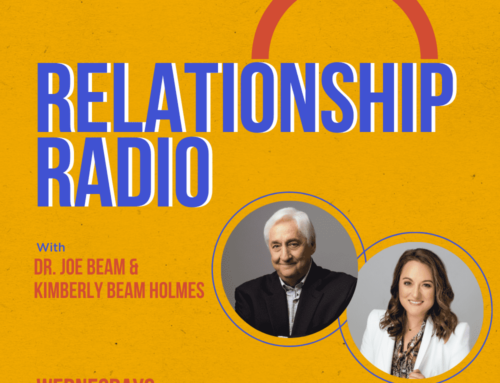You’ve undoubtedly heard someone say they fell “madly in love” before. But, what does that term mean? It is a psychological change in your behavior that we call limerence. The first stage is infatuation. We crave someone else’s attention and become obsessed with them. The second stage of limerence is defined by crystallization, solidifying your feelings and emotions for the new person in your life. This stage is usually when you discover that your significant other is having an affair. So, if you’re looking for answers to why this is happening, we’re going to discuss that in today’s episode of Relationship Radio.
Understanding Why Is For Your Peace Of Mind
In the late 19th century, Freud began looking into the human psyche and understanding why people did things. So while we still don’t understand the reasons behind everything, we have an excellent understanding of principles that you can apply to limerence.
If you’ve read our other articles on limerence, you have probably heard this warning before, but it bears repeating. Attempting to explain to someone in limerence that what they are feeling is an altered state of mind that will eventually end doesn’t usually go very well. Your significant other will be defensive and push back, causing even more problems to overcome. The best thing you can do is to understand what’s happening for yourself to move through the stages with them and hopefully be there to repair your relationship when the opportunity arises.
Understand that you’re not alone. While each case may be unique, we’ll discuss these principles apply to limerence in general. If you’re willing to stand up for your relationship, it can still stay together, but it won’t be easy.
What Are Some Signs Of The Second Stage Of Limerence?
Stage one of limerence is about the need for reciprocity of feelings. It’s a longing for possession and an “us against the world” mentality. That viewpoint can often lead to hypervigilance of looking for a sign from your limerent object. Any slight indication that this person feels the same way toward you can be seen as a sign, whether it’s genuinely one or not.
We can interpret these signs as them wanting to pull away from you, leading to swings of ecstasy and deep depression.
Stage two is often when you discover that your significant other is having an affair, either emotionally, sexually, or both. We call this stage crystallization because you no longer have the ups and downs from stage one, but now believe that your limerent object shares the same feelings as you do. However, your sensitivity remains high, which can often lead to jealousy, possessiveness, and vilification of your current significant other.
The person in limerence often will begin to think that all of the bad things that have happened are their significant other’s fault. As a result, they tend not to remember the good times and exaggerate the bad ones. At the same time, they create a halo effect about their new limerent object. Everything they do makes them happy, and they ignore any flaws or red flags that might be there. Your mind, simply put, is protecting itself and trying to rationalize your emotions and desires to leave your spouse or significant other.
Why Is It Important To Understand The Signs Of Limerence?
A good counselor is worth their weight in gold. You will likely need some professional help if you’re experiencing limerence in your relationship. We at Marriage Helper have researched and studied limerence, but many counselors have not. Counselors that don’t understand limerence will do more harm than good. There have been times when they’ve told couples that there’s nothing they can do now because the significant other is in love with someone else, so they should go their separate ways and be happy.
You must know the signs of limerence for yourself to help you avoid these situations. Limerence doesn’t mean that your relationship is automatically over. Most cases of limerence will run their course within three years. But why does it end?
The intensity of limerence and that obsessive and possessive drive are not sustainable. It’s a disruptive force in our life. So much so that it becomes a biological imperative at some point to end it and get back to everyday life. When we’re in limerence, our entire focus is on the hyper-vigilant pursuit of reciprocation of our love. This intense desire can interfere with every other aspect of our life, including work, other relationships, and productivity in general. So, these feelings have to end at some point, and we’ll then come out of limerence. But we’ll talk more about that when we discuss stage three.
Ask Yourself This Questions Before Making A Life-Changing Decision
What would my life be like if this person in my life went away for good? Asking yourself this simple question can sometimes be the trigger to loosen the grip on limerence. How would your relationships change with your family, children, or friends if your significant other was no longer in your life? Would it be worth what you’re giving up?
Answering these questions can make your significant other realize that the sacrifices made for their limerent object aren’t an equal exchange. If one side feels they are risking more than the other, that can erode the infatuation that started in stage one of limerence. They might realize that they’re making a life-changing decision based on emotions they’re feeling sporadically toward this other person. While part of the human psyche, seeking temporary short-term satisfaction often doesn’t outweigh the long-term damage it can do to other relationships in your life.
When two single people get married, they’re generally not giving up much in the process. But, when children and other relationships get involved, those sacrifices can multiply quickly. As a result, there will always be damage in a limerent relationship. Friends and family will choose sides, and the weight of those losses leads to the deterioration of the limerent feelings.
Love Is An Emotional Roller Coaster
Love is emotional, and our emotions change often. Even in the best situations, marriage takes work to keep it going. While your significant other is experiencing the highs and lows of limerence, you, too, will be going through your mood swings. There will be days where you’re determined to save your marriage, days where you’re unsure if it’s worth it, and days where it feels hopeless.
These changing emotions can be tough to handle, especially on your own. Finding someone to lean on can make a difference when you’re trying to be the constant that your significant other in limerence needs.
Unfortunately, family and friends often only see your side, which leads to faulty advice. They want to see you happy, so they will be quick to advise you to get away from the situation that’s hurting you. Professional help is usually needed, but find someone who understands your situation.
The hardest part for the spouse trying to stand for the relationship is learning to stay calm. Understanding that there are times when there is nothing you can do to make your significant other stay is difficult. The best thing in this situation is to work on your needs, work on your P.I.E.S., and be strong for the next time you have an opportunity to interact with them. Saving your relationship is a long process that you can’t fix in one day.
Why Hasn’t My Spouse Come Back To Me?
The long process of saving your marriage might not end when your spouse’s other relationship does. People don’t leave what they have unless they believe what they’re going to is better. During the early stage of limerence, your significant other focused on your flaws and convinced themselves that you were not suitable for them. They decided that their limerent object was the better choice. Even if their other relationship ends, overcoming this doesn’t happen immediately. Those emotions crystallized in stage two of limerence can’t be broken through without effort.
Nothing in this process will be easy, but having someone to guide you through the next steps can be invaluable. Of course, we can not guarantee it will save your marriage, but it is essential to have a voice to keep you calm and on the right path. Three out of four couples who take our three-day intensive workshop have saved their marriage, so we know that it works.
We offer YouTube videos and podcast episodes for improving relationships and working things out with your spouse.
Check out our free mini-course if your marriage needs help right now and you don’t know what to do. Our mini-course teaches you how to get your spouse back. Contact us to learn more about how we can help you find happiness again.


